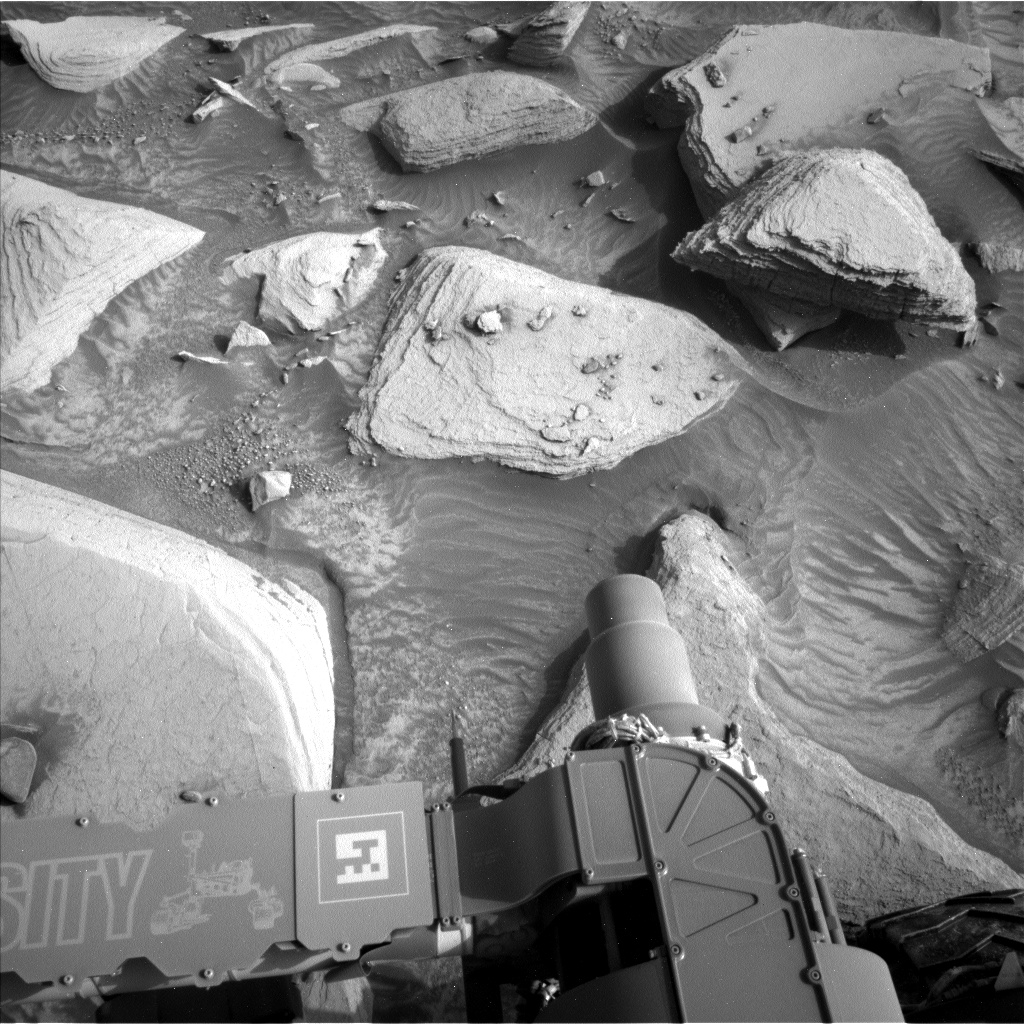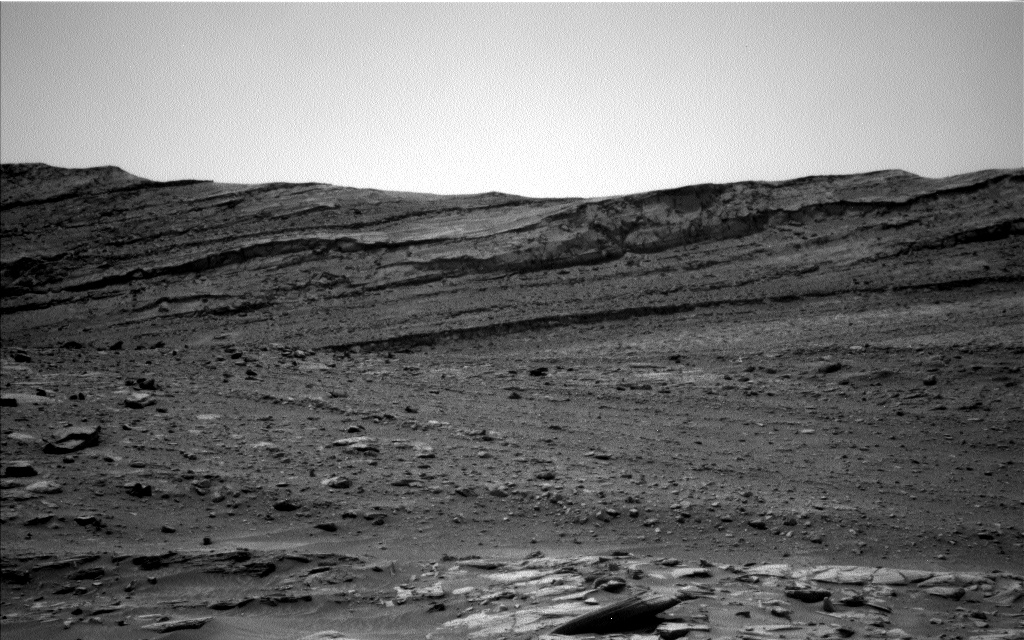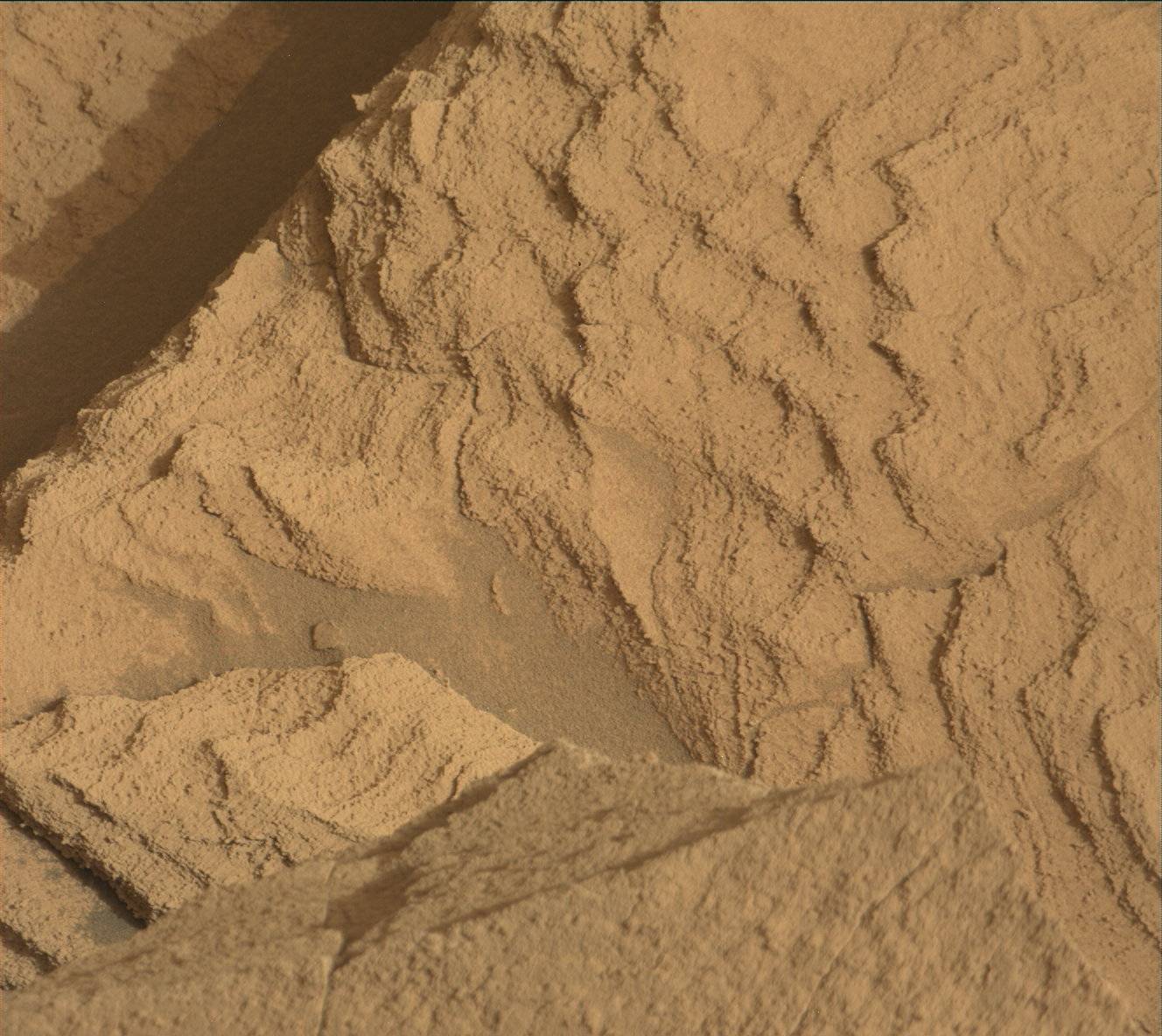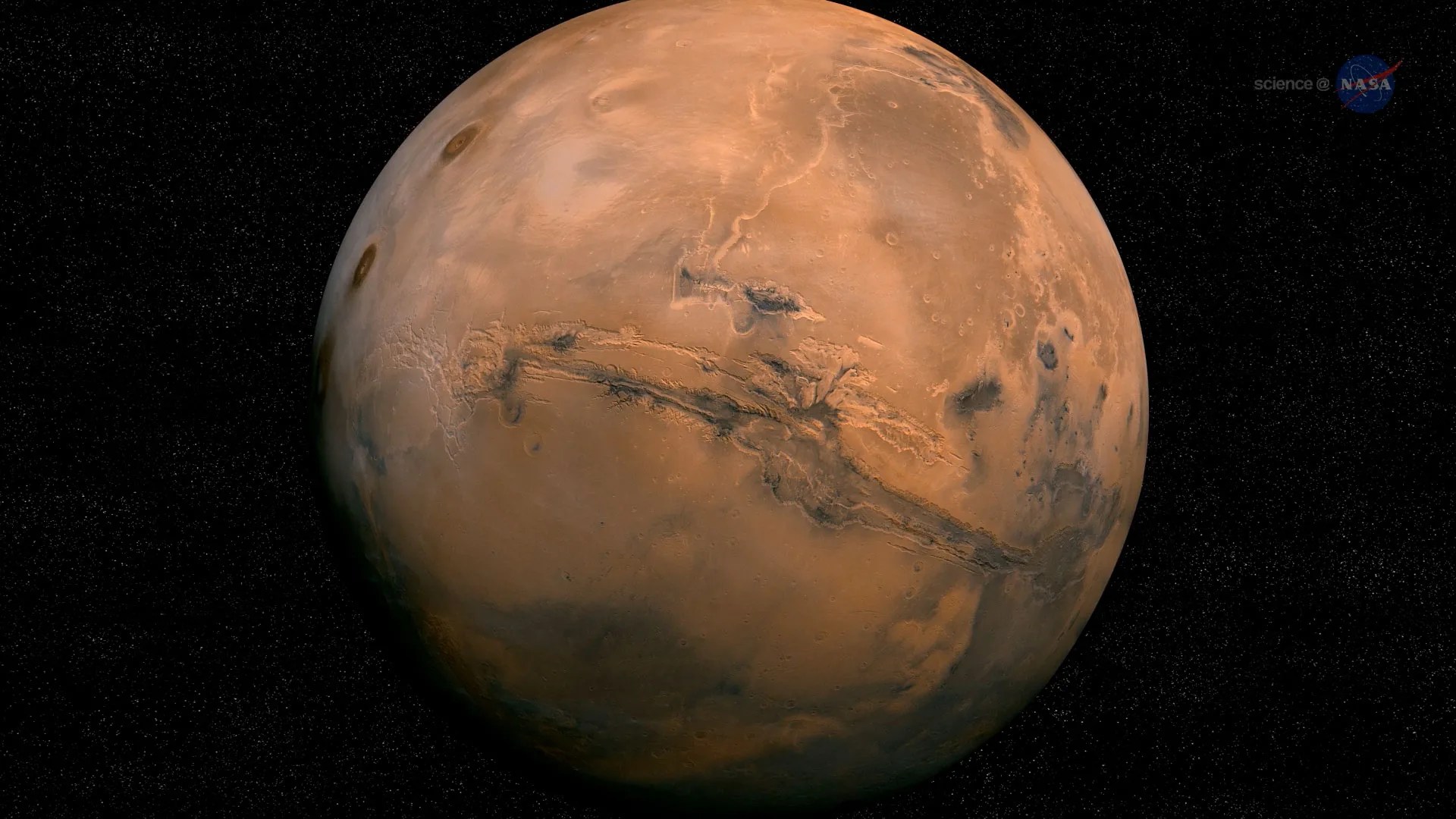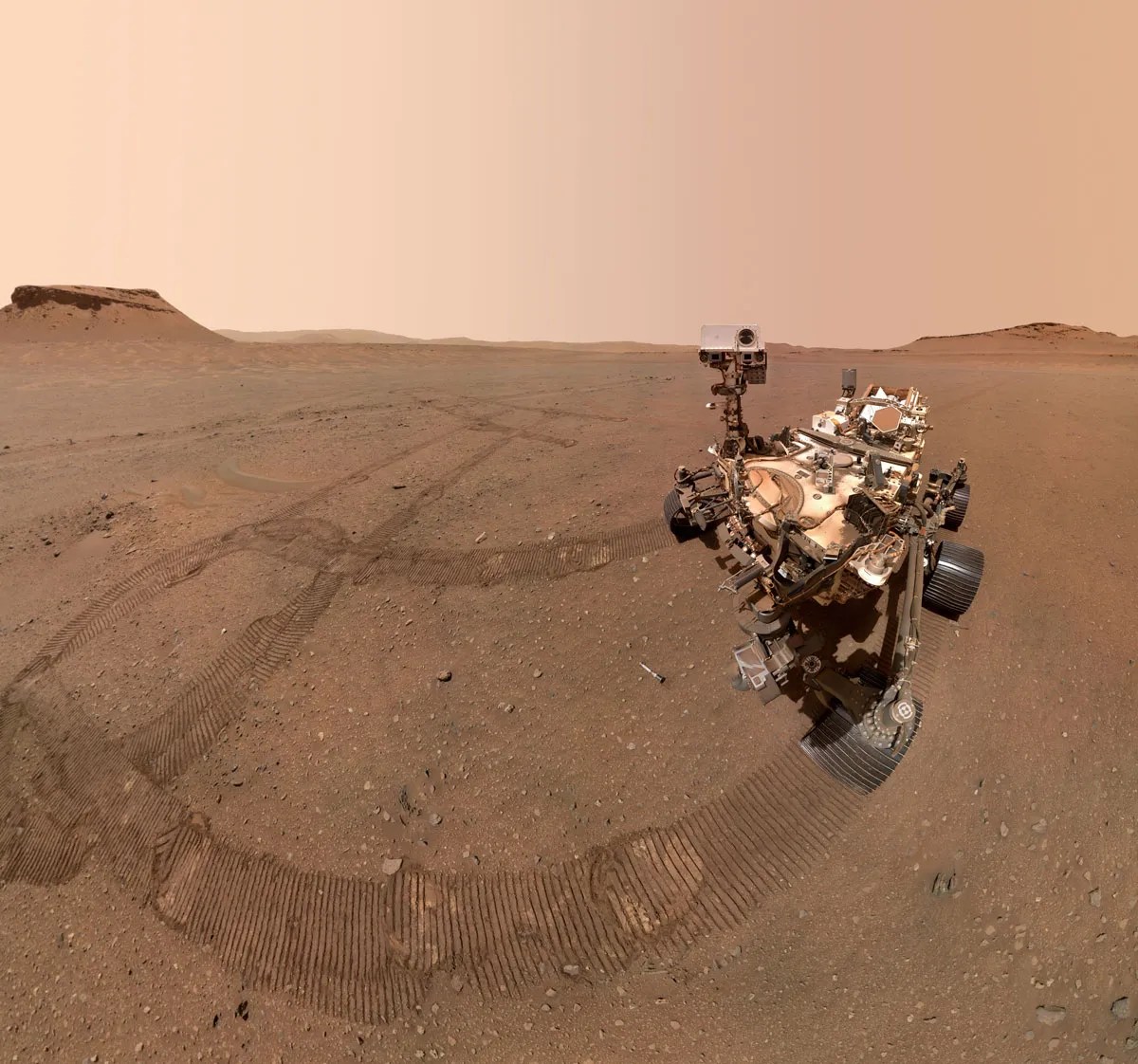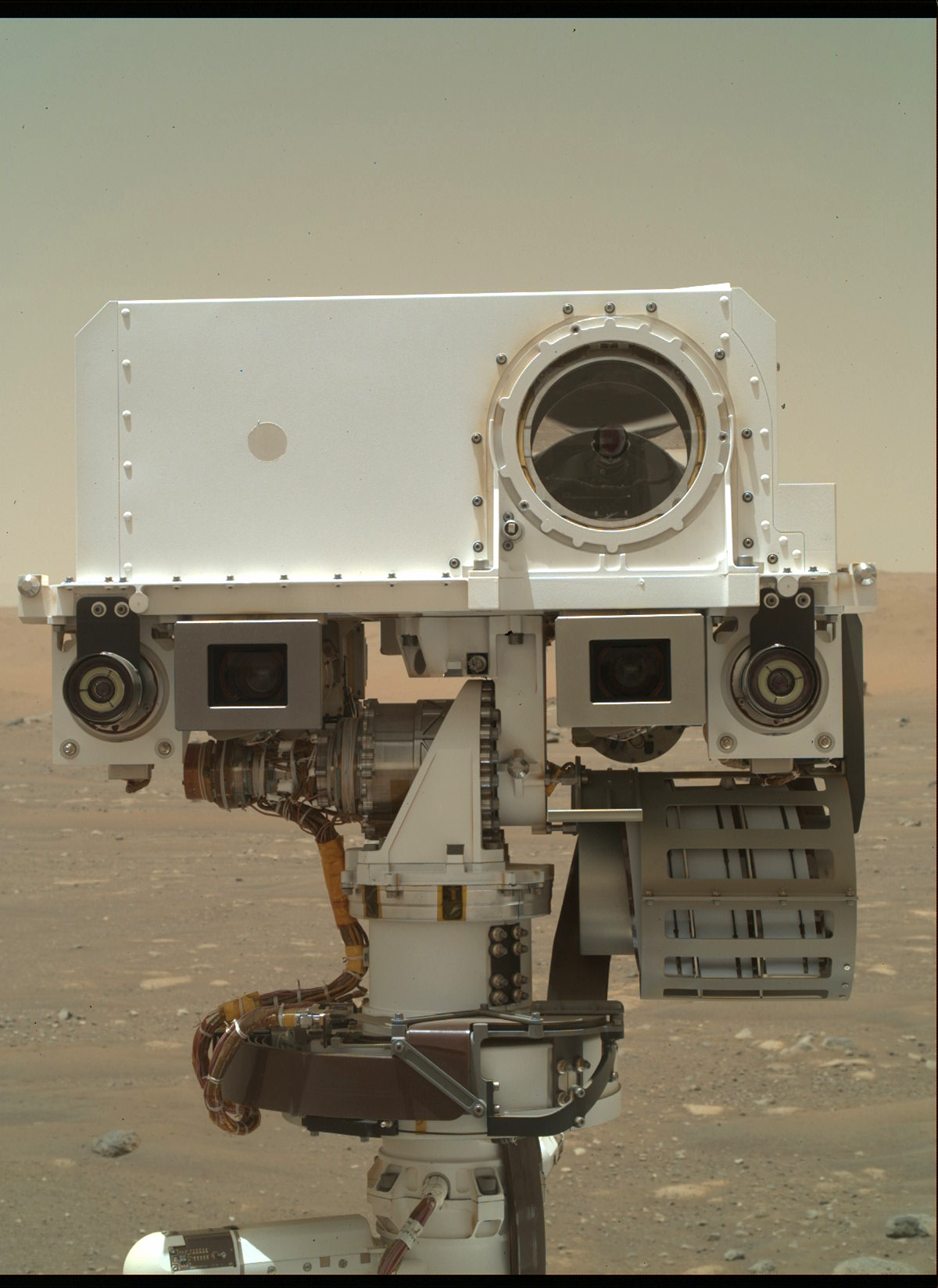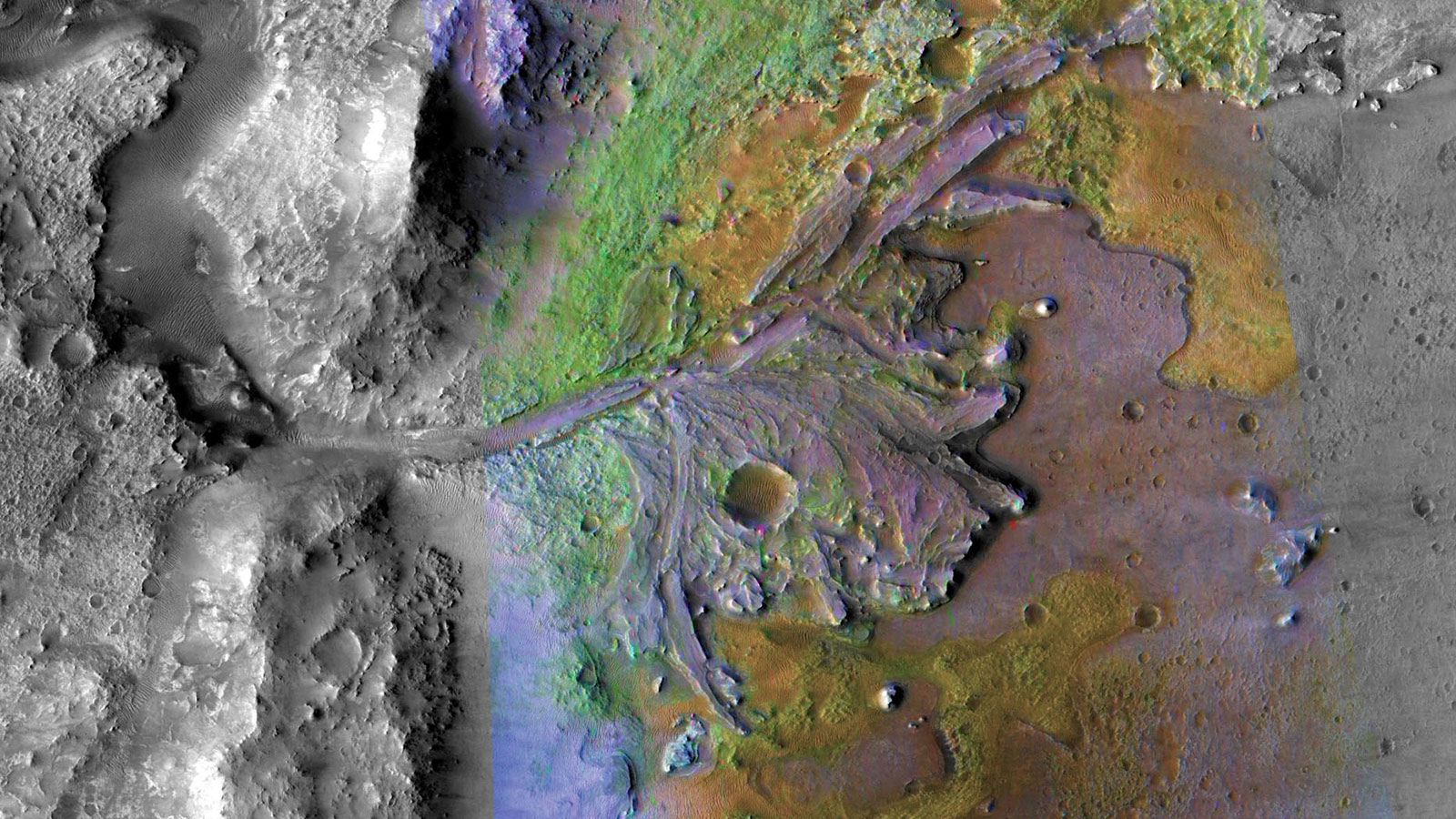2 min read
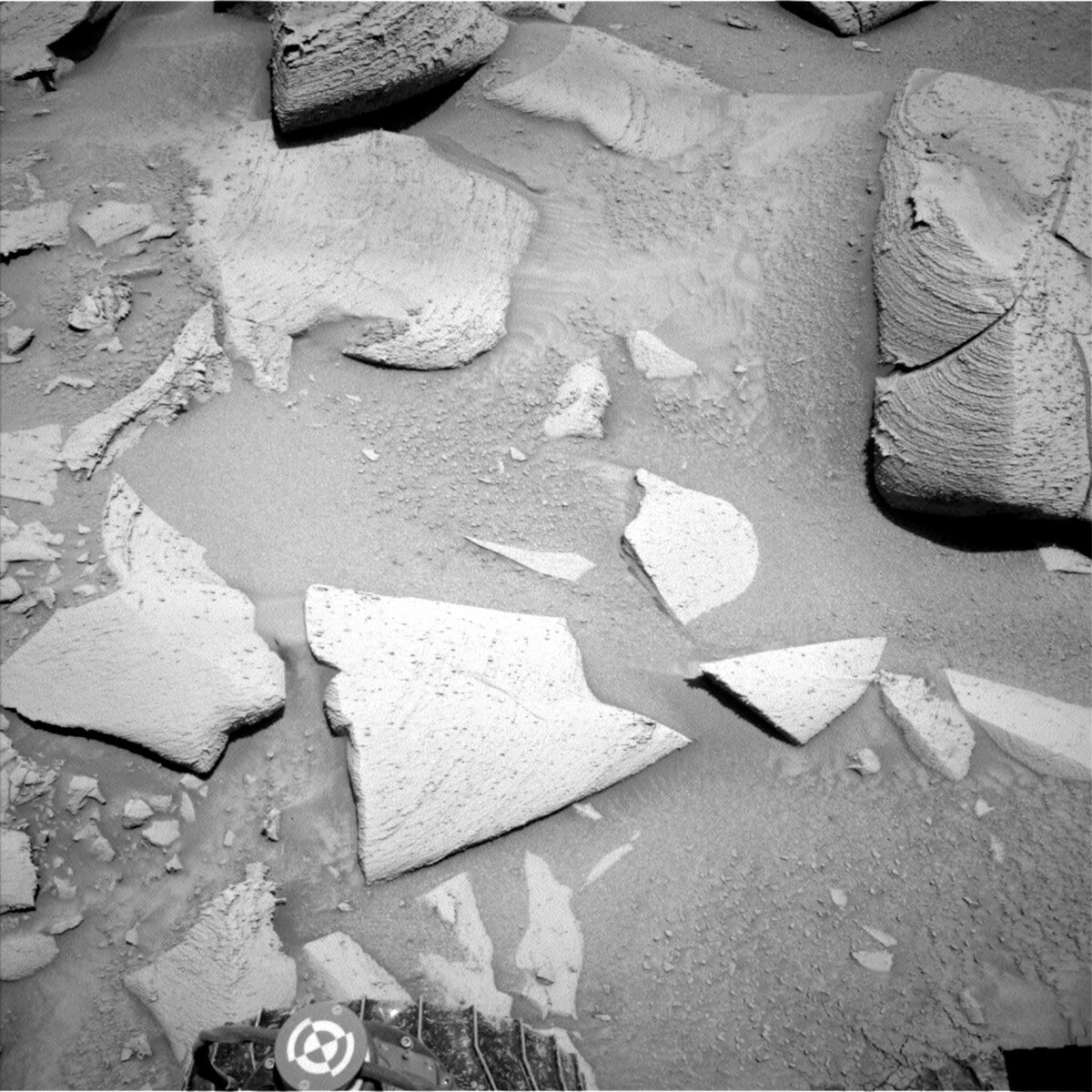
Curiosity is carefully and patiently driving up a local canyon, named Marker Band valley, across a variably tilting surface that is scattered with horizontally banded bedrock and patches of sand. Can you imagine how fun and challenging it would be to scramble up the pass over this bumpy, uneven, and sandy terrain? As the rover continues her ascent up Marker Band valley, the rocks continue to vary subtly. Several targets in this two-sol plan aim to characterize the texture and chemistry of the rocks to document changes that may help unravel the environment in which they formed.
The plan on sol 3803 includes a ChemCam LIBS analysis (plus Mastcam documentation) of a thinly layered bedrock at “Cambrouze” to capture compositional changes between the layers. ChemCam will also take a long-distance image of a rock ledge with interesting structures that may mark a contact between local rock units. Mastcam stereo mosaics are planned at “La Venta” to investigate a rock with a vertical gray colored stripe that may be a sandstone-filled vein or fracture, and “Pequia,” a rock with an interesting texture and subtle horizontal banding. A Mastcam multispectral image will characterize “Ile Portal,” a dark gray rock that looks very out of place resting on the light-toned surface – perhaps it came from further upslope on Mt. Sharp?
After this set of remote observations, the rover will complete a relatively short drive toward a small dark-toned rock that is visible ahead. A few untargeted science activities are in the plan on sol 3804 including a ChemCam AEGIS activity that will give us information about our new workspace as well as Mastcam deck monitoring.
I’m excited to see the view from the next plateau in Marker Band valley! Drive safely, Curiosity!
Written by Sharon Wilson Purdy, Planetary Geologist at Smithsonian National Air and Space Museum

